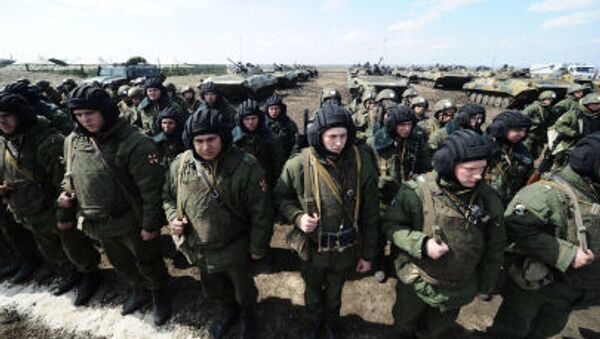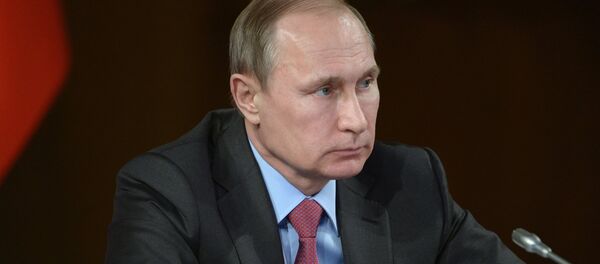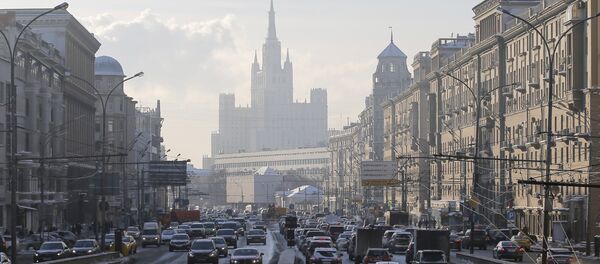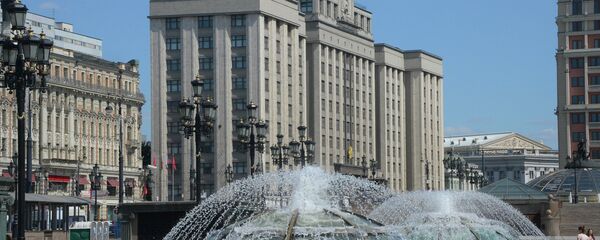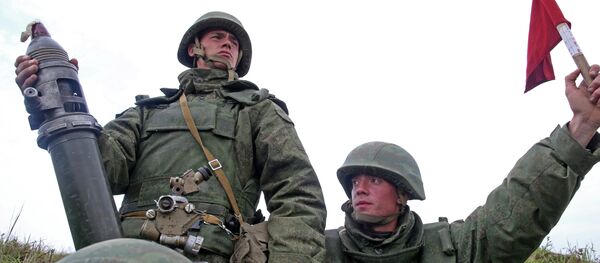On Tuesday, in a meeting with the heads of Russia's major internal defense and law enforcement agencies, President Putin announced the creation of a new federal executive body – the National Guard, which will be charged with fighting terrorism and organized crime, and with helping to maintain peace and order inside the country.
Formed out of the Internal Troops of the Ministry of Internal Affairs, the National Guard, according to the president, will continue to work "in close cooperation" with the ministry.
The new National Guard's tasks, the president noted, will include those previously assigned to OMON and SOBR, tactical special rapid response forces whose functions include the maintenance of public order, assisting police (in a manner similar to SWAT in America), and maintaining order in the event of a state of emergency.
At the same time, the decree published on the president's website explains, the National Guard will also be charged with assuring territorial defense, preventing and dealing with internal armed conflicts, and guarding important facilities, such as nuclear power plants, and cargoes, as well as the protection of other property. The federal body, according to the decree, will also work with the Federal Security Service (Russia's main intelligence agency) in the protection of state borders.
The reorganization, Russian analysts have noted, is significant precisely due to the new body's potential size and strength; the Internal Troops currently number about 200,000 men, and in addition to their other functions, they play an important role in maintaining law and order in the North Caucasus. The troops are fully motorized, have access to armored vehicles (though in smaller quantities than the army), and have their own aviation, engineering, marine and other formations as well.
In addition to the Internal Troops, the National Guard will ostensibly include territorial SWAT and riot police, as well as federal security guard services, totaling 230,000 people; all told, therefore, the new federal service will have up to 430,000 people under its command.
The National Guard, it was announced, will be headed by Viktor Zolotov, formerly the commander of the Internal Troops, and the former head of the president's personal security. His new rank will be equal to that of a federal minister, and he will report directly to the president.
A veteran officer in Russia's security services, Zolotov served as Putin's personal bodyguard starting in 1999. Before that, he served as bodyguard to President Boris Yeltsin, and to St. Petersburg Mayor Anatoli Sobchak, which is where he met Putin. Between 2000 and 2013, Zolotov was the head of the president's personal security service, serving as the deputy director of the Federal Protective Service, the agency charged with the protection of high-ranking state officials, including the president.
Commenting on the reasons for the reorganization and the National Guard's ultimate purpose, Russian analysts are divided in their assessments.
For their part, liberal commentators at Gazeta.ru suggested that the new service will provide the president with extensive leverage over the country's security forces. At the same time, the paper speculated, the reorganization is meant to accommodate Zolotov, who had had bouts of bureaucratic infighting with Internal Affairs Minister Vladimir Kolokoltsev in the past.
For its part, Moscow-based online newspaper Lenta.ru offered another perspective, suggesting that the formation of the new force may be connected with the Russia's military doctrine of 2014, which saw the introduction of a number of new threats to national security, associated with internal and external factors aimed at the country's destabilization.
"It's obvious that given a major restructuring of the range of threats, new specific steps [were] needed to create a system capable of compensating for these threats," the online paper noted, adding that until now, apart from counterterrorism tools, which are highly effective, but limited in terms of applicability, the state "simply did not have the tools" necessary to counter the perceived new dangers.
Ultimately, the paper suggests, in its pursuit of combating destabilization and civil disturbances, as well as resolving problems of social unrest following natural or man-made disasters, "the National Guard is not unlike its American counterpart, which works in disaster areas, and in areas of major civil unrest."
Finally, Lenta.ru notes, "questions remain about the functions of the newly created security service – in particular, its possible acquisition of the powers of investigation, motivated by its tasks of fighting terrorism and extremism. [If this were to occur,] Russia, factually, will receive not only a new security agency, but also a new, full-fledged intelligence agency."

